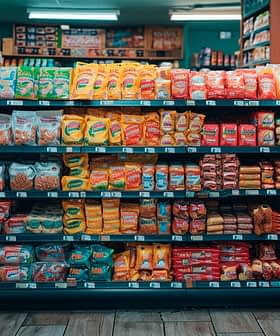Our Preference for Tasty Foods Does Not Necessarily Lead to Obesity
Good taste can stimulate food intake acutely, and guide selection toward nutrient-dense foods that cause weight gain, but it does not determine how much is eaten chronically.
More or less, we are all aware that overconsumption of foods high in fat and sugar brings on obesity. As Michael Tordoff, a physiological psychologist at Monell Chemical Senses Center, explained to Olive Oil Times, “The cause of obesity is the trifecta combination of high carbohydrates, particularly sugars, high fat, and high energy density. It takes all three — carbs, fat, and calories.”
I think it is possible to improve the taste of a food using natural flavors fairly easily.
“It is not a coincidence that the foods we tend to like most are the ones that cause weight gain, as we learn to like the taste of these foods because they provide energy,” Tordoff added.
Would that mean that humans are condemned to a life of dull flavors and gastronomical misery for the sake of weight control? Not so fast, according to the same scientist, who was the senior author of a just-published Monell Chemical Senses Center study.
The study, the findings of which were published in the journal Physiology & Behavior, took a different approach from previous ones of its kind, separating the positive sensory qualities of the delicious foods from their high sugar and fat content.
In a series of experiments using mouse models, the researchers first made sure that mice show a strong preference for food with added concentrations of sucralose and mineral oil in their chow.
To confirm this, they gave mice two cups of food. The first group of mice could choose between a cup of plain rodent chow and a cup of chow mixed with the noncaloric sweetener sucralose. The second group had a choice between a cup of plain rodent chow and a cup of chow mixed with noncaloric mineral oil.
Invariably, mice ignored the plain chow and consumed almost all of the sweetened or oily chow, hence the scientists drew the conclusion that sweet and oily (but non-caloric in this specific case tastes) were simply more alluring.

Michael Tordoff
Then, the team proceeded to Experiment 1. In this stage, they compared groups of 16 new mice fed plain chow with no additives to groups fed chow with added sucralose, mineral oil, sucralose and mineral oil, or sucralose on odd days and mineral oil on even days. It was shown that over the course of the six-week test, the body weights and body compositions of the five groups did not actually differ.
In Experiment 2, the Monell team compared groups of 18 mice fed plain chow or a plain high-fat diet to groups of mice fed these diets with the addition of sucralose. The test lasted nine weeks this time. Unavoidably, the group fed a high-fat diet did gain weight, but the body weights of mice fed the sucralose-sweetened diets did not differ from those fed plain chow, while extra tests conducted upon completion of each experiment showed that mice kept opting for the chow with added sucralose and/or mineral oil.
The study established that, even though the pleasant taste of a food affects whether we choose to eat it or not, and that taste can generally guide selection toward nutrient-dense foods that bring on obesity, it does not affect the amount of food we consume in the long run, suggesting that by means of food manipulation, we can have foods that are both healthy and tasty.
“I think it is possible to improve the taste of a food using natural flavors fairly easily, and there may still be plants out there that taste yummy that haven’t made it to Western culture yet, and which might qualify as not synthetic,” said Tordoff. “But, clearly, adding non-nutritive sweeteners and oils is likely to remain among the most powerful ways of manipulating a food’s taste.”




